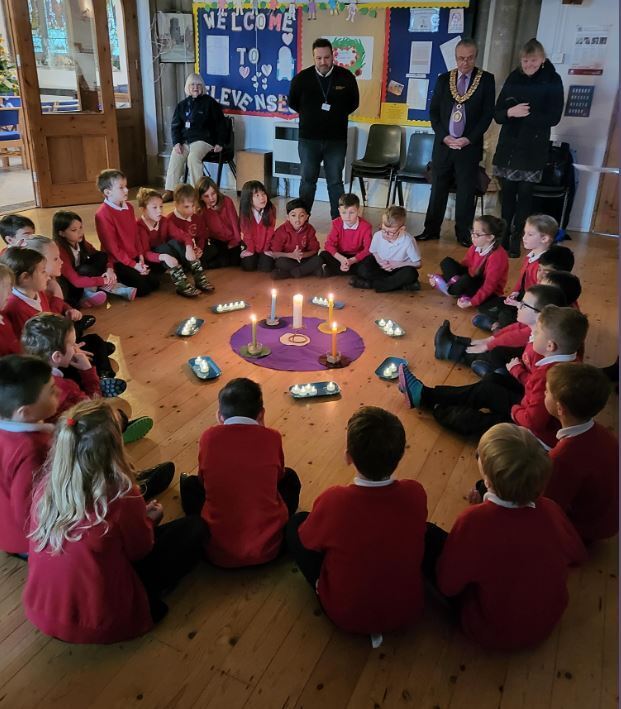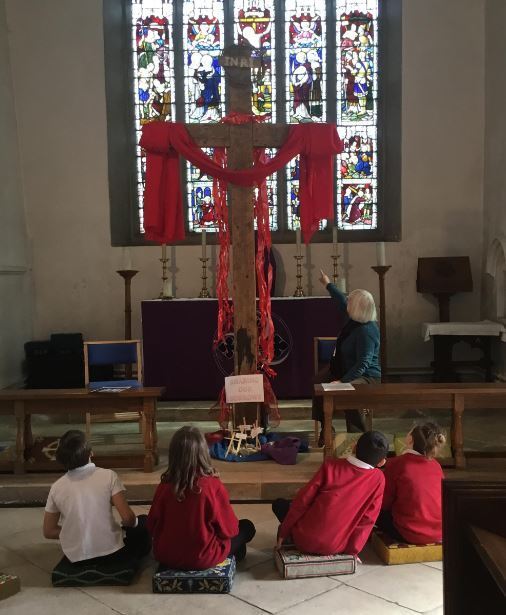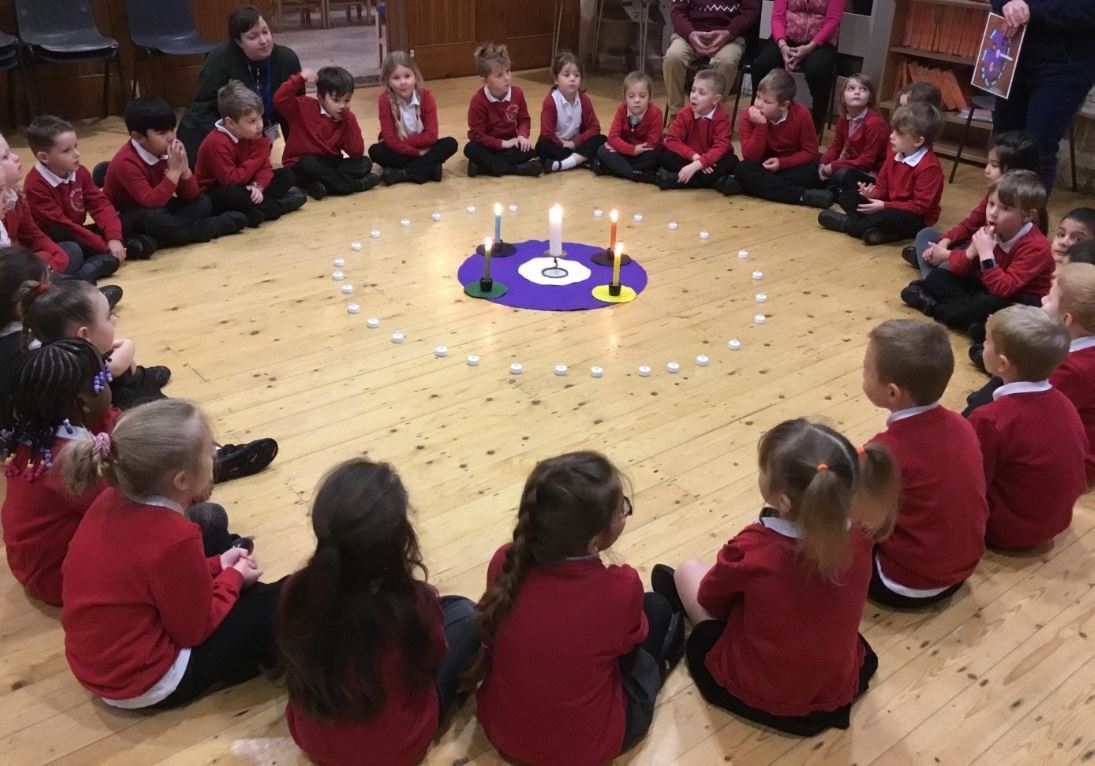Religious Education


Religious Education
At New Cangle, we believe that Religious Education provides an opportunity to celebrate and foster awareness of the differences within our school and the wider world. RE is a subject that celebrates diversity and challenges stereotypes and is taught in accordance with the aims of the Suffolk Agreed Syllabus. Particularly relevant to our school is the aim, which states: ‘Religious Education should help pupils to develop a positive attitude towards other people, respecting their right to hold different beliefs from their own, and towards living in a society of many religions and beliefs.’
We follow ‘Where do I stand?’ the Suffolk Agreed Syllabus for Religious Education 2023 by using Jigsaw RE scheme of work.
Jigsaw RE is an enquiry-based scheme of work, covering the principal world faiths and humanism in a progressive way from Reception to Year 6. In the early years, the learning is closely matched to Development Matters to contribute meaningfully to your child’s holistic development. Throughout all the enquiries, the children’s spiritual, moral, social and cultural education is carefully considered.
Each enquiry lasts for half a term and begins with a “big” question such as “What is the best way for a Christian/Jew/Muslim etc. to show commitment to God?” The children then start discussing the theme of the enquiry (in this case, commitment) from their own experience. What have they shown commitment to? Brownies? Cubs? Their sporting team? Playing an instrument?
Only when the children fully understand the concept they are considering, do they then move on to investigating what the people following the studied religion or worldview believe about it. They will spend approximately three lessons on this, learning in a variety of ways, so they can adapt their responses and come to a measured conclusion. In week 5, they will complete an activity, which can assess their learning, by answering their “big” question. The assessment activities are child friendly and can be answered in a variety of ways, as long as the child can justify their view with the knowledge they have gained throughout the enquiry. This demonstrates the level of critical thinking that the children can apply – a valuable skill for them throughout the school curriculum.
The final week in every enquiry gives the children time to reflect on what they have learnt about the concept and apply to it their own lives, thus allowing them to form their own beliefs and identity. For example, learning that Sikhs share their food with all who attend has taught me ……… about sharing that I would like to take forward with me. These lessons are often very creative and children have opportunities to make items to express themselves in ways other than just writing.
Aims
With the guidance from the Suffolk Agreed Syllabus (2023) using RE Jigsaw, our aims are to:
· acknowledge the breadth and diversity of worldviews, religious and non-religious, that pupils will encounter, and the ways these are lived out.
· establish an entitlement to excellent religious education for all pupils, irrespective of type of school attended, social background, ability, gender, culture, religion or personal worldview.
· promote continuity and coherence in RE in different phases of education by setting out a curriculum linked throughout by three disciplines: theology, human and social science, and philosophy.
· increase professional, parental and public understanding of RE as a subject that underpins British values, enables informed debate on issues of belief in a diverse society, and promotes the possibility of amicable disagreement.
The three disciplines are present in each key stage but with the emphasis shifting slightly, so that human and social science may be more obvious in the Early Years and Key Stage1, and theology in Key Stage 2.
Theology in RE involves enquiry into:
· Key beliefs/concepts of a religion or worldview, both distinctive and shared
· Sources of authority for religious beliefs e.g. sacred texts, religious leaders, divine revelation
· Particular beliefs about God, humanity, life, and the nature of an after-life
· Differences in interpretation of key beliefs and changes in religious belief across time/culture
Human and Social Science in RE involves exploration of:
· Different customs, celebrations and rituals based on religious and secular beliefs
· The influence of sacred texts and religious leaders on communities
· Diverse interpretations, and at different times
· Moral, ethical and practical lifestyle choices based on secular or religious worldviews
Philosophy in RE involves engagement with:
· Ultimate questions of truth, morality, purpose and meaning in life
· Questions arising from religious and secular stand points, texts or customs
· Conflicting answers offered by religious and non-religious groups and individuals
· Changes in questions/answers overtime and across societies
Jigsaw RE gives schools a choice of which religions to teach in different year groups. At New Cangle, we have chosen the following options as we feel this best:
New Cangle - Suffolk suggested Curriculum Map
More details of our RE curriculum can be found in the following documents: Religious Education Intent, Implementation and Impact Statement
Legal Requirements
RE is taught in accordance with the aims of the Suffolk Agreed Syllabus. In accordance with the law, we provide religious education for all pupils registered at the school. Parents have the right to withdraw their pupils from religious education. Parents who choose to withdraw their children from Religious education lessons are required to state this in writing annually to the Head teacher.
We believe that it is the responsibility of the parents, who have chosen to withdraw their children from school RE, to provide acceptable alternative religious education work for their children to do during RE lessons. We expect that this work will be discussed with the class teacher so that these children can be fully included, and their alternative work linked to what the rest of the class is learning.
Mrs Laurie leads RE; she is passionate about children’s understanding of different religions, cultures and viewpoints.








